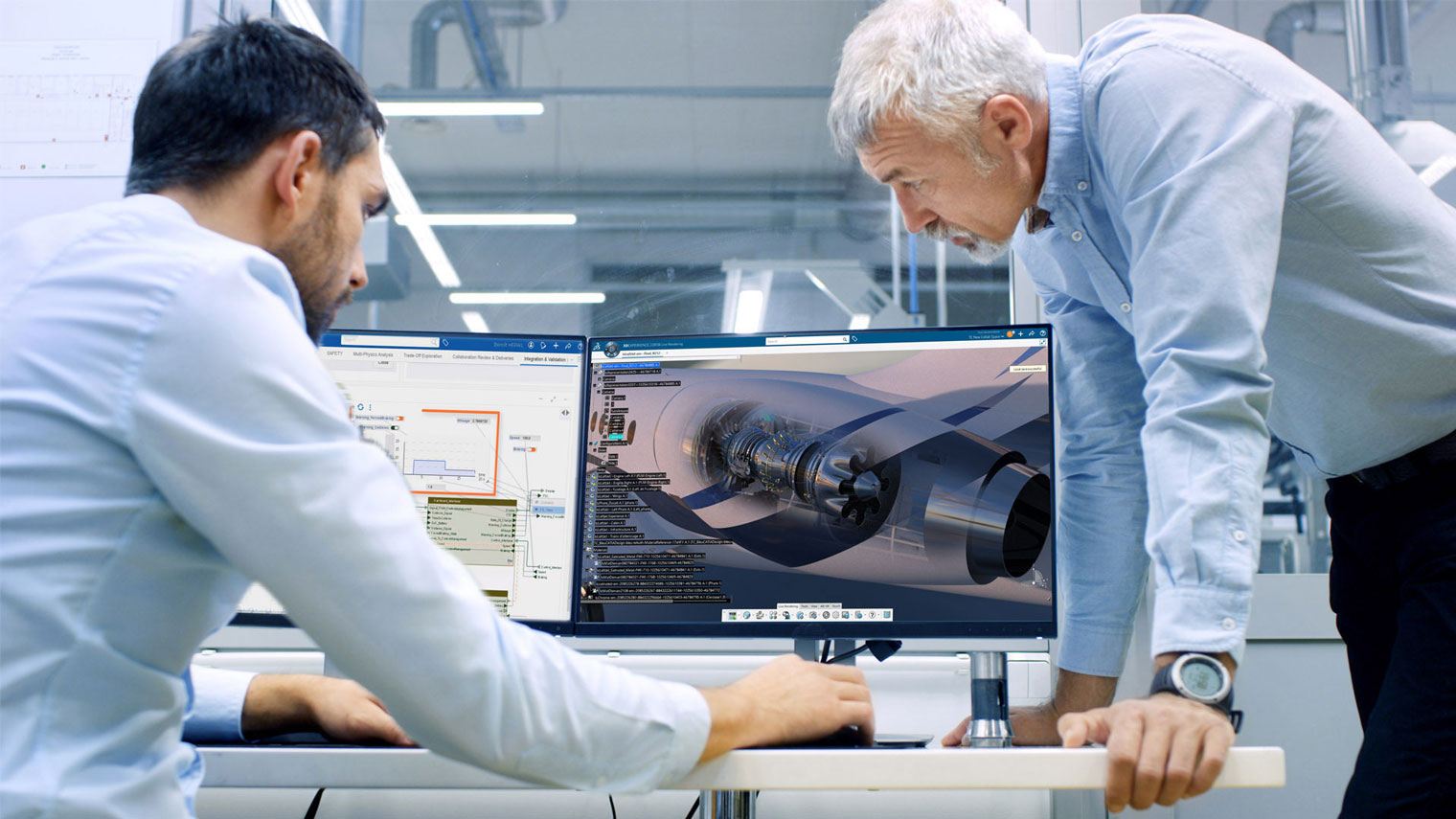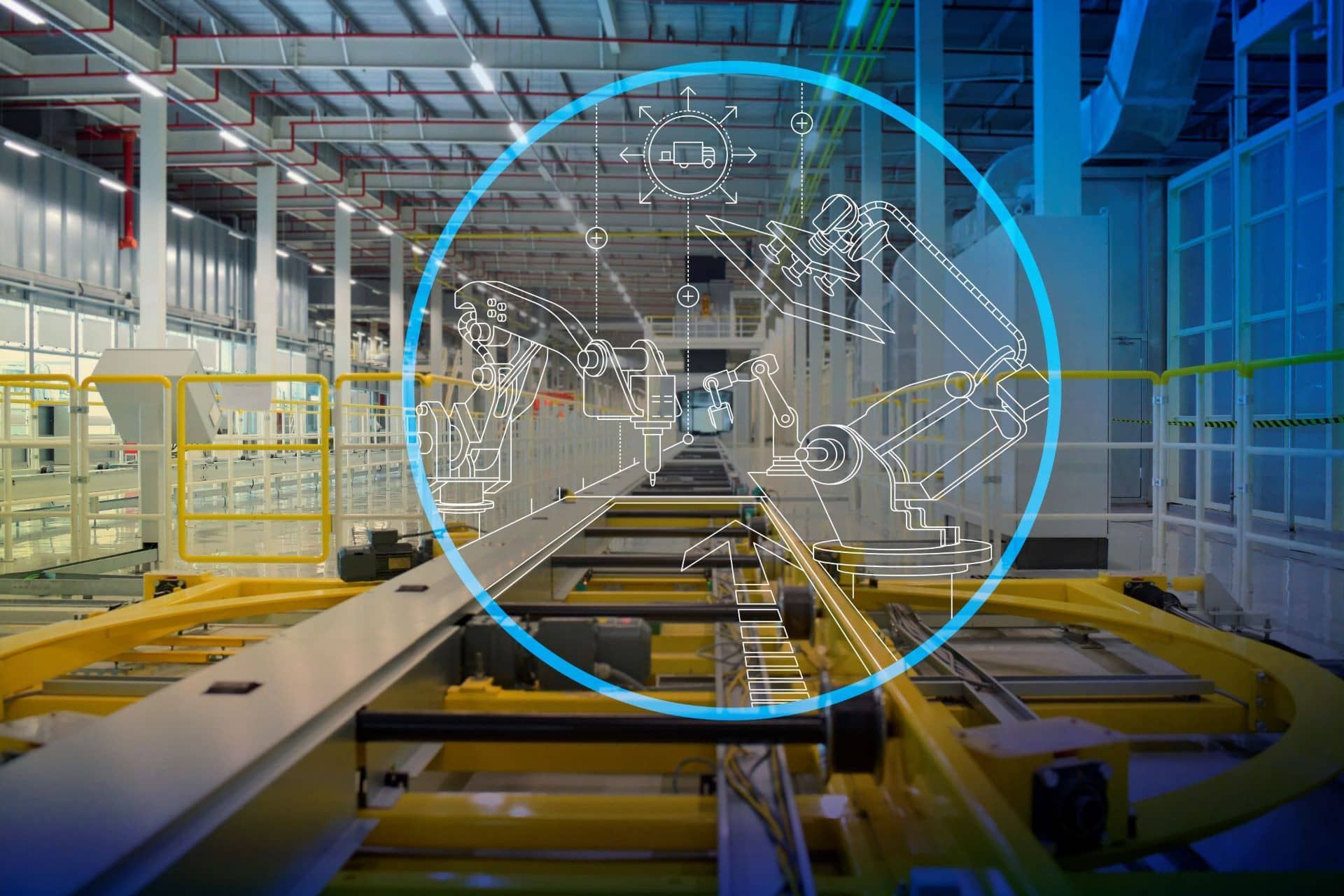01
Faster Innovation
CATIA helps teams turn ideas into products quickly by integrating design and simulation in one environment. Real-time collaboration and iterative modeling allow faster decision-making and shorter development cycles.

 CATIA
CATIA
Connecting engineers, data, and ideas to accelerate product innovation with precision.
CATIA (Computer-Aided Three-Dimensional Interactive Application) is Dassault Systèmes' flagship 3D design and engineering platform. It combines advanced CAD, CAE, and CAM capabilities into a single environment, enabling designers, engineers, and manufacturers to collaborate seamlessly. With CATIA, teams can move from concept to production faster by creating precise 3D models, performing real-time simulations, and validating complex designs before manufacturing.
The platform supports multi-disciplinary collaboration, allowing mechanical, electrical, and systems engineers to work together on the same digital models, ensuring accuracy and reducing errors. CATIA also integrates virtual twin technology, enabling organizations to test and optimize products in a simulated environment, minimizing physical prototyping and accelerating time-to-market.

CATIA offers powerful 3D modeling tools to create precise parts, assemblies, and complex surfaces. Its parametric and freeform design capabilities allow quick iteration and exploration of alternatives. Engineers can maintain accuracy at every stage while developing mechanical, consumer, or aerospace products. CATIA streamlines the modeling process while preserving design intent across the lifecycle.
CATIA's built-in simulation tools let teams test product performance virtually. Structural, thermal, kinematic, and fluid analyses are performed directly on 3D models. This reduces errors, speeds up development, and minimizes physical prototyping. Products can be validated for functionality and compliance before production.
CATIA provides a unified workspace for engineers, designers, and managers to collaborate in real time. Sharing a single digital model helps teams coordinate changes, review designs, and resolve conflicts early. This eliminates silos, ensures consistency, and improves communication across departments and locations.
CATIA's cloud platform offers secure, on-demand access to design data and tools worldwide. Users can work remotely, collaborate with distributed teams, and scale resources easily. Cloud deployment ensures updates, built-in security, and integration with enterprise systems, enabling innovation without infrastructure limits.

CATIA's virtual twin technology allows teams to create digital replicas of products and systems, enabling simulation and testing before physical production. This approach reduces errors, minimizes costs, and accelerates product development cycles.
Multi-disciplinary collaboration ensures engineers from different domains—mechanical, electrical, and systems—work together on the same models, achieving seamless digital continuity and faster decision-making.
 Driving business transformation and growth.
Driving business transformation and growth.

CATIA helps teams turn ideas into products quickly by integrating design and simulation in one environment. Real-time collaboration and iterative modeling allow faster decision-making and shorter development cycles.

By enabling virtual testing and validation, CATIA reduces the need for physical prototypes. This lowers material, manufacturing, and rework costs, helpingcompanies optimize budgets.

CATIA provides a unified digital workspace for designers, engineers, and managers. Teams can share models, coordinate changes, and resolve conflicts in real time, improving overall efficiency.

CATIA supports eco-friendly product development by helping teams optimize materials, processes, and energy use. Designs can be evaluated for environmental impact, promoting sustainable practices.
 Intelligent solutions driving global industries.
Intelligent solutions driving global industries.

CATIA helps engineers design and simulate high-performance vehicles and aircraft. Its 3D modeling and virtual testing tools reduce development time, improve safety, and optimize aerodynamics and structures. Collaborative workflows ensure faster innovation across global teams.

CATIA enables precise design of machinery, tools, and complex industrial systems. Engineers can validate assemblies, perform stress analysis, and optimize parts before production, reducing downtime and manufacturing costs while improving product reliability.

CATIA supports the design of medical devices, lab equipment, and biotechnology solutions. Virtual simulations ensure product safety , regulatory compliance , & ergonomic design, while collaborative tools speed up development from concept to market.

CATIA allows designers to create innovative consumer products with high precision and appealing aesthetics. Its integrated modeling and simulation tools help optimize ergonomics, materials, and manufacturing processes for quality and efficiency.

CATIA assists in designing complex infrastructure projects, from bridges to industrial plants. 3D modeling, structural simulation, and collaborative workflows improve project accuracy, reduce errors, and ensure timely delivery.